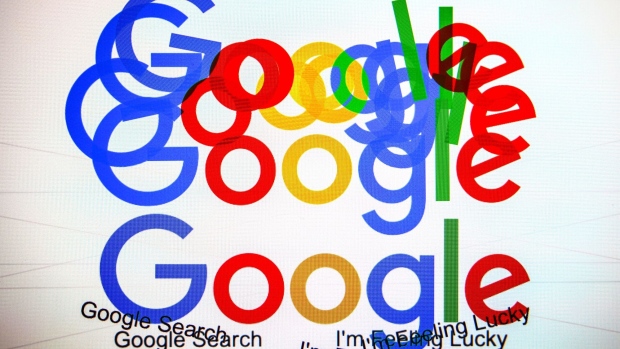Apr 16, 2023
Google ‘Racing’ to Build New AI Tools for Search, NYT Says
, Bloomberg News

(Bloomberg) -- Alphabet Inc. was headed for its biggest single-day decline in more than two months following a report that Samsung Electronics Co. has considered replacing Google with Microsoft’s Bing as the default search engine on its devices.
Google employee’s were shocked when they learned about Samsung’s threat in March, the New York Times reported on Sunday, citing internal messages. The contract between Alphabet and the world’s leading smartphone maker is under negotiation and Samsung could still stick with Google, according to the Times.
Shares of Alphabet fell as much as 4% as trading got underway in New York. If the losses hold throughout the day, it will notch the biggest drop since early February. Microsoft was up 1.7%.
Bing’s threat to Google’s search dominance has escalated in recent months with the addition of OpenAI’s technology to provide ChatGPT-like responses to user queries.
Google is working on several projects to update and renew its search services to avoid losing ground. Those include adding artificial intelligence features to its existing offerings, under a project named Magi, which has more than 160 people working on it, the Times reported.
Google is “excited about bringing new AI-powered features to search and will share more details soon,” Lara Levin, a Google spokeswoman, said in a statement. A Google representative did not comment on the company’s negotiations with Samsung. A representative from Samsung declined to comment.
Samsung shipped 261 million smartphones in 2022, according to IDC data, all running Google’s Android software. The Korean company has long-established partnerships with both Microsoft and Google, and its devices come preloaded with a library of apps and services from both, such as OneDrive and Google Maps.
Between its Samsung deal and one with Apple Inc., which the Times report valued at roughly $20 billion in annual revenue, Google has commanding market share in mobile devices in the US and much of the rest of the world.
Large language models, such as the one underpinning ChatGPT and the chatbot functionality in Microsoft’s Bing, are not new to Google. The company has been using LLMs to anticipate the intent of users’ queries, Google’s chief business officer said on the company’s fourth-quarter earnings call in February. Google is also rolling out Bard, its own chatbot search assistant, though doing so at a very cautious pace.
Read more: Google Opens Bard AI Chatbot, Racing to Catch Up to OpenAI
--With assistance from Sohee Kim.
©2023 Bloomberg L.P.





